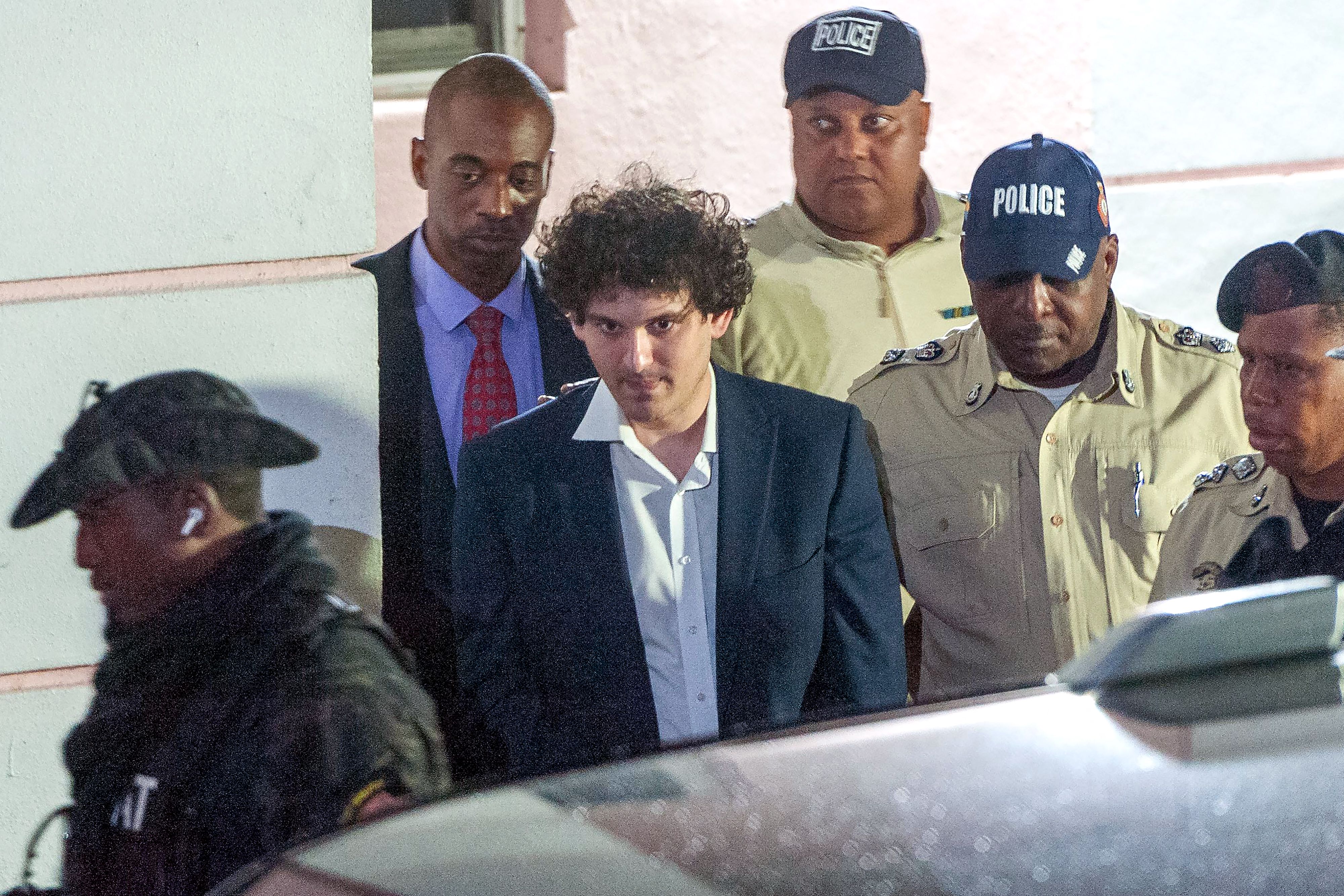The daily business briefing: December 14, 2022
Consumer prices rose by less than expected in November, prosecutors accuse FTX founder Sam Bankman-Fried of fraud, and more


A free daily email with the biggest news stories of the day – and the best features from TheWeek.com
You are now subscribed
Your newsletter sign-up was successful
1. Prosecutors accuse FTX founder Sam Bankman-Fried of fraud
U.S. prosecutors on Tuesday accused disgraced FTX founder and former CEO Sam Bankman-Fried of fraud and violating campaign finance laws in what U.S. attorney Damian Williams in New York called one of the "biggest financial frauds in American history." The collapsed cryptocurrency exchange's current CEO, John Ray, told House lawmakers on Tuesday that FTX lost $8 billion of client money after placing "absolute concentration of control in the hands of a small group of grossly inexperienced, nonsophisticated individuals." Bankman-Fried made a court appearance Tuesday in the Bahamas, where FTX is based. He was arrested there on Monday. A Bahamian magistrate judge denied him bail after prosecutors argued the former billionaire was a flight risk as he plans to fight extradition to the United States.
2. Consumer prices increased less than expected last month
The Labor Department reported Tuesday that consumer prices rose in November at an annual rate of 7.1 percent, less than expected, and down sharply from October's 7.7 percent pace and June's 9.1 percent peak, the highest rate in four decades. Last month's inflation rate was the slowest 12-month pace since December 2021, but still far above the 2.1 percent average. The Federal Reserve has been raising interest rates aggressively to cool the economy and bring down inflation. The Fed is expected to hike rates 0.5 percent Wednesday at the end of a two-day meeting, after four consecutive 0.75 percent increases. President Biden seized upon the latest figures, calling them proof that his policies are stabilizing the economy.
The Week
Escape your echo chamber. Get the facts behind the news, plus analysis from multiple perspectives.

Sign up for The Week's Free Newsletters
From our morning news briefing to a weekly Good News Newsletter, get the best of The Week delivered directly to your inbox.
From our morning news briefing to a weekly Good News Newsletter, get the best of The Week delivered directly to your inbox.
The Wall Street Journal The Washington Post
3. Rubio introduces bill seeking to ban TikTok
Republican Sen. Marco Rubio (Fla.) on Tuesday unveiled a bipartisan bill seeking to ban China's popular social media app TikTok over concerns it could be used to spy on Americans. The bill would block transactions from social media companies in or influenced by China and Russia, increasing pressure on TikTok owner ByteDance. FBI Director Chris Wray said in a congressional hearing last month that TikTok's U.S. operations raise national security concerns, because Beijing could use it to influence users or control their devices, Reuters reported. A TikTok spokesperson called the proposal "a politically-motivated ban that will do nothing to advance the national security of the United States," and said Congress should hold off until the federal government completes a security review of TikTok.
4. Stock futures flat ahead of Fed rate decision
U.S. stock futures were little changed early Wednesday as investors awaited the Federal Reserve's latest decision on raising interest rates to bring down inflation. Futures tied to the Dow Jones Industrial Average, the S&P 500, and the Nasdaq were down about 0.2 percent at 6:30 a.m. ET. Stocks gained for a second straight day on Tuesday with a boost from a cooler-than-expected November inflation report. Analysts expect the Fed to announce a 0.5 percent interest-rate increase later Wednesday at the end of a two-day policy meeting, a slowdown after four straight 0.75 percent hikes. Fed Chair Jerome Powell's post-meeting remarks could offer clues on what the Fed will do next.
A free daily email with the biggest news stories of the day – and the best features from TheWeek.com
5. Moderna vaccine shows promise against skin cancer
Moderna's experimental cancer vaccine helped reduce the risk of a skin-cancer recurrence in a mid-stage trial. Used in combination with Merck's blockbuster immunotherapy Keytruda, Moderna's personalized cancer vaccine helped cut the risk of relapse or death from melanoma by about 44 percent, compared to the use of Keytruda alone, in the 150-volunteer study, the companies said Tuesday. The companies called the result a "statistically significant and clinically meaningful improvement." The results haven't been independently reviewed. Moderna's cancer vaccine is based on the messenger RNA (mRNA) technology behind widely-used COVID-19 vaccines. Moderna shares jumped as much as 23 percent Tuesday.
Harold Maass is a contributing editor at The Week. He has been writing for The Week since the 2001 debut of the U.S. print edition and served as editor of TheWeek.com when it launched in 2008. Harold started his career as a newspaper reporter in South Florida and Haiti. He has previously worked for a variety of news outlets, including The Miami Herald, ABC News and Fox News, and for several years wrote a daily roundup of financial news for The Week and Yahoo Finance.
